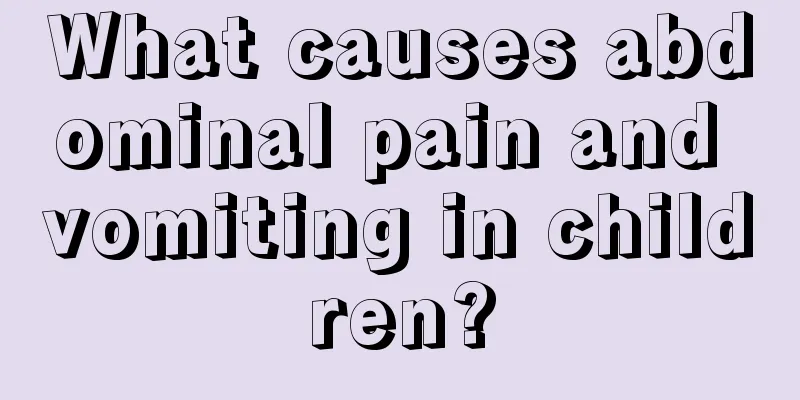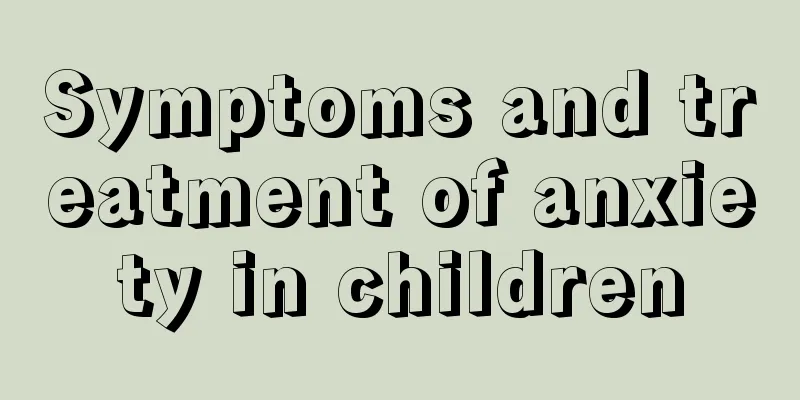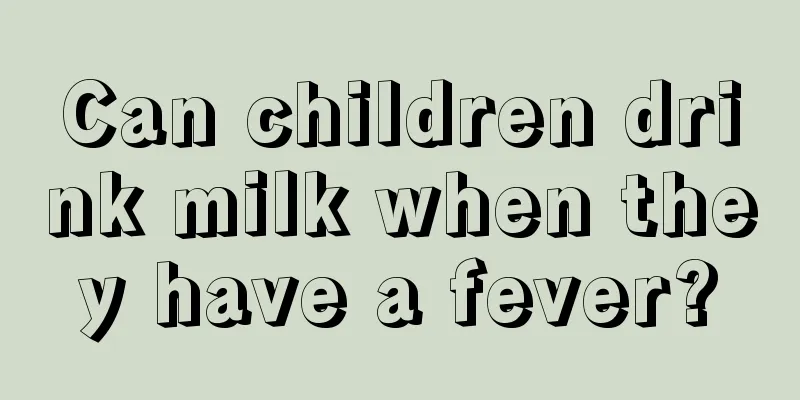What should I do if my child is aggressive?

|
In fact, people have this kind of inherent aggressive tendency when they are born. For example, babies will become angry when they are very young. Many babies will cry or become angry when their IDE demands are not met. In fact, these are all inherent aggressiveness. As they grow older, if parents can take good care of their children, the children's aggressiveness will gradually decrease. If they do not pay attention to guiding their children, the children's aggressiveness will become stronger and stronger. What if the child is aggressive? A large number of child psychology studies have shown that children's aggressive behaviors and various conflicts between children appear as early as before the age of two, and gradually increase throughout the period from 0 to 6 years old. Moreover, children's aggressive behaviors all have similar manifestations. For example, they will cry when they are not satisfied, throw things, steal other people's things to play with, yell, call other people's names, verbally attack others, etc. These are all aggressive behaviors. What should I do if my child is aggressive? 01 Parents set good examples for their children (1) Cultivate your character and improve your ability to control your emotions, understand others, and regulate your interpersonal relationships. For example, never quarrel, beat, scold, or attack others just because you are unhappy. (2) Create a good family atmosphere. Family members should speak to each other in a friendly manner and trust each other. Give children enough love, praise them often, guide them to compare themselves with themselves, and allow them to have plenty of free play time, a variety of toys, and adequate sleep. (3) Guide children to read healthy books, play games, watch movies and TV shows, and receive positive education on the rules of interpersonal communication. 02 "Cold treatment" of children's aggressive behavior (1) Stop the child’s aggressive behavior promptly and guide the child to recognize the mistakes in his or her behavior. (2) Leave the child and ask him/her to reflect on his/her mistakes by himself/herself for a few minutes. (3) Ask the child to talk about the results of his/her reflection and evaluate his/her reflection correctly. 03 Let children experience the joy of being trusted in their learning choices (1) Provide a way to express respect for oneself and others. (2) Provide the correct way to express emotions. (3) Provide opportunities for children to face challenges and learn to accept challenges and their consequences. (4) Emphasize to the child the pleasant experience he or she will have when he or she behaves correctly, and guide the child to see his or her own expertise and abilities. 04 Cultivate children’s self-esteem Appreciate children, trust children, encourage them to do what they want to do with confidence, accept challenges and see the possibility of success with an optimistic attitude, and increase their tolerance for failure and tolerance for opponents. 05 Stimulate empathy and learn to think from other people’s perspectives (1) Children are born with empathy. Through some specific things in life, such as sympathizing with weak lives and helping the elderly, the weak, the sick and the disabled, we can stimulate and improve children's empathy and cultivate a kind heart, which can fundamentally eliminate aggressive behavior. (2) By playing specific roles in stories or real life, children can experience the victim’s shoes and improve their ability to think from other people’s perspectives. Aggressive behavior is a common bad behavior in children's growth, which will have an adverse impact on the healthy development of children. Parents must pay attention to this. Once a child shows aggressive behavior, effective measures must be taken in time to lay a good foundation for the child's healthy development throughout his life! |
<<: How to guide children correctly
>>: Is cupping good for children?
Recommend
What should I do if my child is allergic to fruit?
Parents often feed their children fresh fruits an...
Tips for treating toothache in children
For many adults, toothache is often unbearable be...
What should I do if my baby walks with his feet turned inward?
Babies often walk with their feet turned inward b...
What should I pay attention to when my 2-year-old baby has chronic pharyngitis?
In fact, the source of infection for patients wit...
Examination and diagnosis of excessive eye mucus in children
I believe everyone is accustomed to children havi...
Hearing examination and treatment of newborns
Newborn hearing examination is extremely importan...
Why do children suffer from ADHD? What factors does ADHD involve?
Under normal circumstances, pregnancy and childbi...
Child blinking while watching TV
Children always blink when watching TV, but many ...
How should children exercise?
Children's physical exercise should be someth...
Premature breast development in children
Perhaps many parents will find that their childre...
Causes of premature breast development in children
When children are growing, parents should pay mor...
How can the baby gain weight if he is too thin?
The healthy growth and development of the baby is...
Symptoms and treatment of intestinal spasms in children, these measures must be understood
For families with children, it is important to un...
What causes infantile dermatitis?
The skin of a newborn is generally more fragile t...
How does the baby always suck his fingers?
Experts say that babies first learn about the wor...









